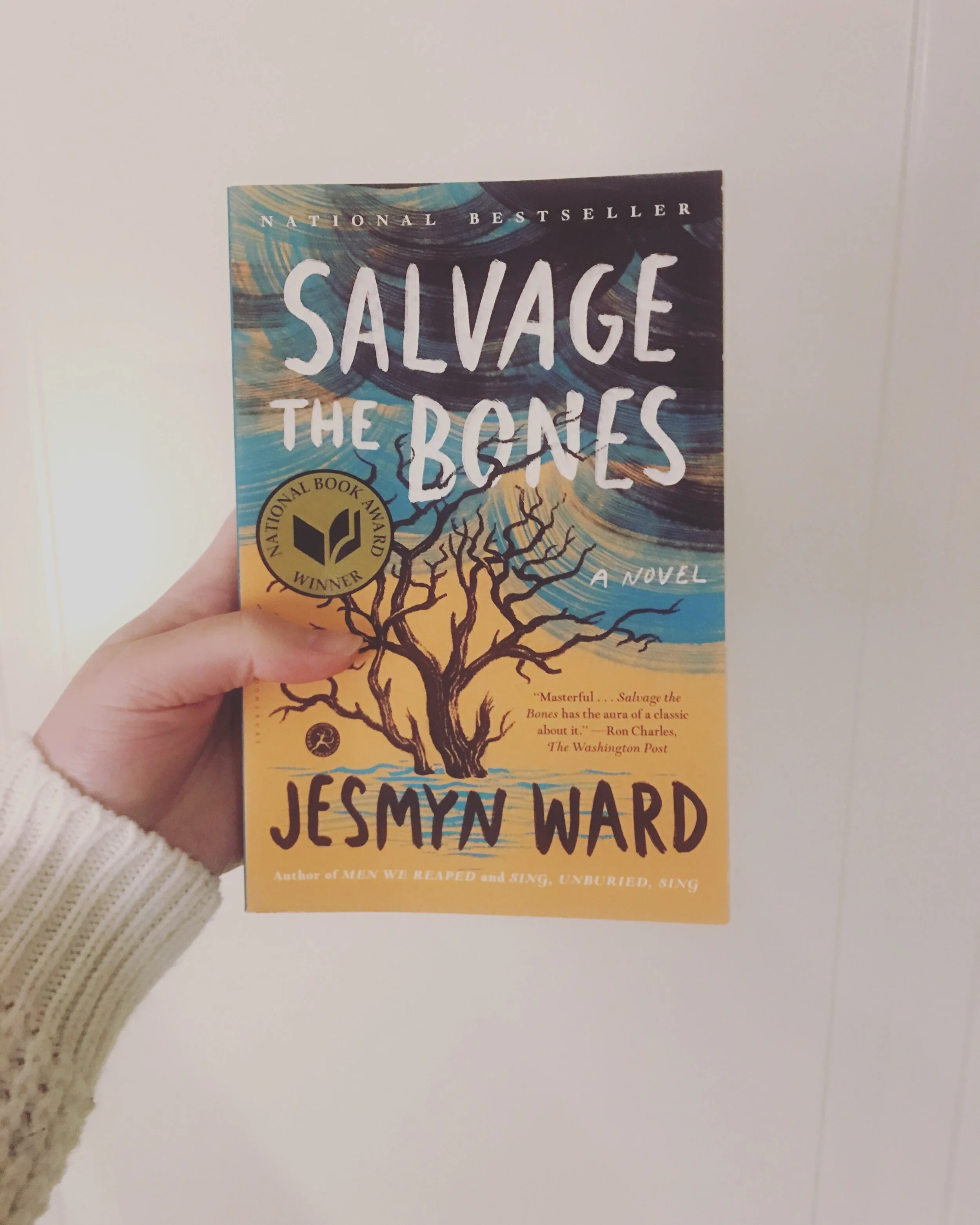Commentary: Salvage the Bones by Jesmyn Ward
Lauralei’s Instagram @rebelmouthedbooks: https://www.instagram.com/p/Bxk2vKmg5y3/?utm_source=ig_web_copy_link
Salvage the Bones was the first book I’ve read about Hurricane Katrina. Ward delivers so much in just a twelve day span in the story— surprising me at every turn with moments of violence and moments of tenderness. The story itself is small— centered on one family and their neighbors, but it echoes loud and big.
(From my copy’s Q&A with the author, Jesmyn Ward):
Q: Why did you want to write about Hurricane Katrina?
A: I lived through it. It was terrifying and I needed to write about that. I was also angry at the people who blamed survivors for staying and for choosing to return to the Mississippi Gulf Coast after the storm. Finally, I wrote about the storm because I was dissatisfied with the way it recessed from public consciousness.
I want to honor Ward’s words here; not simply by giving them space, but by talking about Hurricane Katrina, specifically about how Hurricane Katrina’s aftermath reveals a lot about racism in America.
According to Pew Research Center,
“In a national poll conducted Sept. 6-7, 2005, a week after the storm made landfall, African Americans delivered a scathing assessment of the federal government’s relief efforts. Two-thirds (66%) said that ‘the government’s response to the situation would have been faster if most of the victims had been white.’ Just 17% of whites agreed – most whites (77%) said the race of the victims would not have made any difference.”
Racism rears it’s head in stories about Katrina.
According to Vice’s article “Hurricane Katrina Was a Nightmare for Inmates in New Orleans,” inmates at Orleans Parish Prison (OPP) were kept at the prison even after announcements were made to evacuate.
“Because OPP earns roughly $25 a day per prisoner from the state, city cops don't do a whole lot of catch-and-release. In August 2005, the majority of OPP's roughly 6,800 prisoners hadn't been convicted of a serious crime. They were people who couldn't pay traffic tickets, drunk tourists who'd pissed on Bourbon Street, kids caught smoking pot.”
Aka lots of black and brown inmates incarcerated for profit alone.
During the storm, the prison lost power. “With no power, the electric cell doors remained stubbornly shut as the facility filled with water.” The toxic sewage water rose up to some inmates necks. People were trapped for days at a time with no food or water. “There are no official reports on inmate deaths during Katrina.”
According to a The New Yorker article titled “Race and the Storm,”
“Katrina didn’t usher in a new narrative about race in America as much as it confirmed an old one.”
For those of us who haven’t thought of Katrina since 2005, Salvage the Bones is a necessary read. And I hope it spurs you all to delve deeper too— to research and question. If you are white, imagine you survived the storm and a black family came to your door to ask for help. Would you turn them away? Answer honestly. Ward’s family was turned away by a white family in their time of need. It really happened to her.
As our world continues to suffer from global warming, storms like this will increase. And those who suffer first are black and brown folks. Unless we change things.
